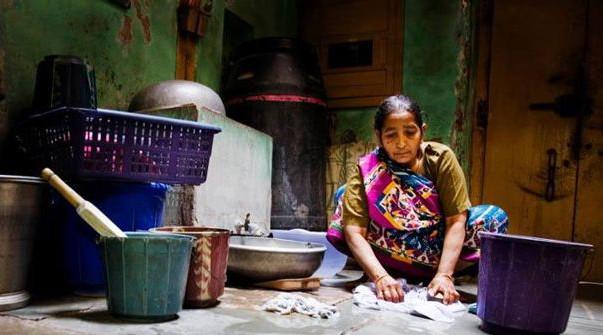Govt Says Policy For Domestic Workers In Progress, But Activists Are Demanding Legislation Instead

Image Courtesy: Flickr
A policy for regulating the employment and working conditions of domestic workers is underway, said Santosh Kumar Gangwar, the Union Minister of State (Independent Charge) for Labour and Employment, in the Lok Sabha on 5 March 2018. In a written reply to a question, Gangwar said discussion was going on regarding the National Policy for Domestic Workers.
On 10 October 2017, the Ministry of Labour and Employment had issued a notice regarding formulation of a national policy for domestic workers.
Domestic workers (popularly known as ‘maids’) are part of the country’s vast informal and unorganised labour force, and consist of an overwhelming majority of women from marginalised communities.
The 2011 NSSO data estimated the number of domestic workers at 3.9 million, but trade unions in the country put the number at around 10 million.
A 2010 study by Jagori noted a sharp increase in women domestic workers in “the last three decades”. “In 2004-05, there were 3.05 million women domestic workers in urban India marking an increase by 222 percent from 1999-2000 (Chandrashekhar and Ghosh 2007),” the report said.
As per the government, the main features of the policy under consideration are inclusion of domestic workers in the existing legislations; registration of domestic workers as workers with the State Labour Department; right to form their own associations, trade unions; right to have minimum wages, access to social security, protection from abuse, harassment, violence; protection of domestic workers from abuse and exploitation; domestic workers to have access to courts, tribunals, etc.; establishment of a mechanism for regulation of concerned placement agencies.
However, activists have been demanding that the government put in place a legislation, instead of a policy, because a policy is not binding and implementation cannot be ensured.
Activists have also been demanding that the Government of India ratify the ILO Convention 189 Decent Work for Domestic Workers, which was passed in June 2011 and to which India is a signatory.
Earlier in 2010 and 2011, the Union ministry of labour had created a task force and prepared a draft National Policy for Domestic Workers, but the policy was held up by the parliamentary Standing Committee.
The National Platform for Domestic Workers (NPDW) — a coalition of more than 20 organisations working with domestic workers in over 15 states — has even prepared a Bill, titled the Domestic Workers Regulation of Work and Social Security Bill 2017.
Speaking to Newsclick, Subhash Bhatnagar of NPDW said, “Policy means nothing, if you cannot get a policy implemented through a court of law, you cannot receive any benefits through the policy, alone. You necessarily need a central legislation.”
“Even to ratify the ILO Convention, government needs to put a structure in place, a system, but that system cannot be created through a policy. In 2013 as well, the NPDW had submitted a draft Bill for domestic workers to the government.”
The 2017 Bill prepared by NPDW includes provisions like compulsory registration of all domestic workers, employers and service providers (middleman/placement agency); setting up of a Central Advisory Committee consisting of persons representing domestic workers’ and their unions/associations); and establishment of a Domestic Workers Social Security Fund.
While the Government of India has not yet ratified Convention 189 of the ILO, the government did included domestic workers in the Sexual Harassment of Women at Workplace (Prevention, Prohibition and Redressal) Act 2013, after campaigning by activists.
Domestic workers have also been included in schemes like the RSBY health insurance scheme and it was implemented by some states. Gangwar also told the Lok Sabha on 5 March that some state governments like Rajasthan, Kerala, Punjab, Tamil Nadu and Tripura had already included domestic workers in the schedule of the Minimum Wages Act.
Get the latest reports & analysis with people's perspective on Protests, movements & deep analytical videos, discussions of the current affairs in your Telegram app. Subscribe to NewsClick's Telegram channel & get Real-Time updates on stories, as they get published on our website.
























